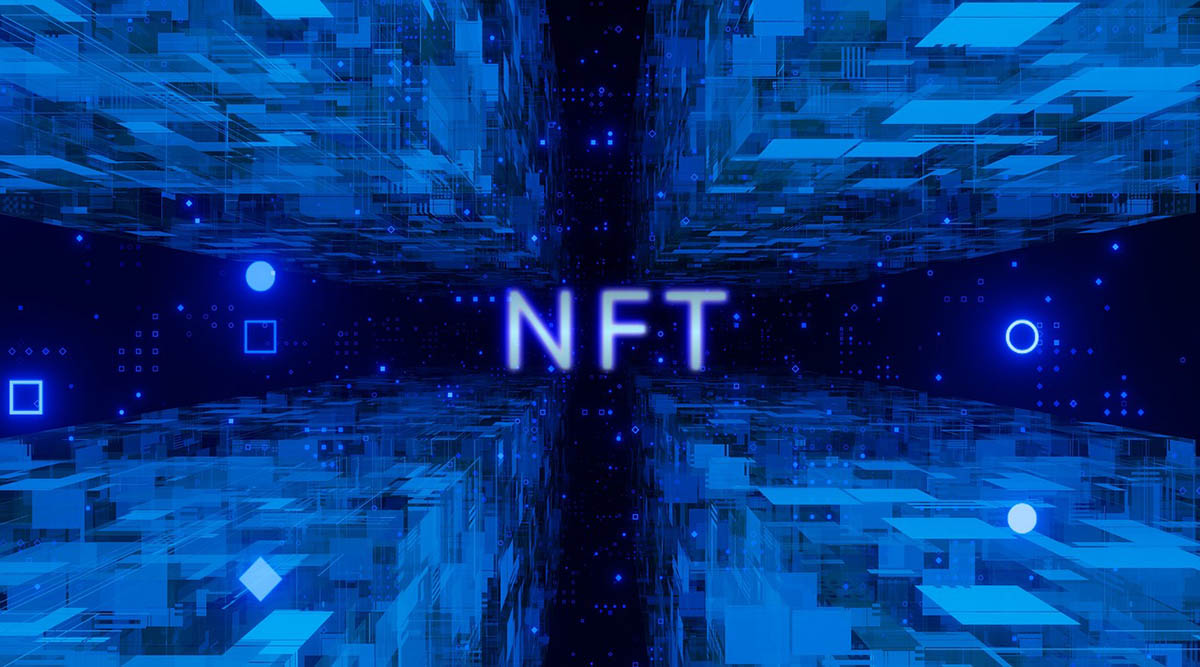
NFTs: A Blockchain Innovation Across Several Industries
NFTs, or non-fungible tokens, have become a significant force in the digital age. These unique digital assets, stored on blockchain technology, offer proof of ownership and authenticity, setting them apart from traditional digital files. Unlike cryptocurrency, where each unit is identical, NFTs are unique, allowing them to represent a variety of digital items from art to music and virtual real estate. The NFT movement is rapidly expanding across industries and reshaping how we think about ownership and value.
NFTs aren’t just a trend; they’re a fundamental shift in how digital assets are owned and traded. As NFTs grow in popularity, businesses and individuals seeking to engage in the NFT marketplace can benefit from the expertise of an SEO agency. This support enhances visibility, connects buyers and sellers, and ultimately drives growth in this emerging sector.
NFTs in the Art World
NFTs have redefined how art is created, owned, and sold. Artists who once relied on galleries now have direct access to audiences through NFT marketplaces, allowing for innovative ways to monetize digital art. Ottawa’s OAG (Ottawa Art Gallery) has embraced this shift with exhibitions like “NFTs: Passages,” showcasing how digital art can be experienced and appreciated in virtual spaces. The gallery’s initiative underscores the role of NFTs in modern art, giving artists a global platform to showcase their work.
For artists, NFTs provide a way to retain control over their creations, even after they’ve been sold. Through “smart contracts” embedded in NFTs, artists can receive a percentage of resale profits, providing long-term financial benefits. This integration of blockchain with art not only benefits creators but also collectors, offering a transparent and verifiable history of ownership.
As the art world grows more competitive, artists and galleries can benefit from working with a specialized SEO agency for NFT offerings to enhance their visibility in NFT marketplaces. Such agencies use targeted strategies to connect artists with potential buyers, maximizing the reach and impact of their NFT offerings.
By understanding the NFT world and tailoring and optimizing content accordingly to increase online exposure, these agencies can help NFT entrepreneurs of all types navigate the digital space. They can do this by driving traffic to their NFT portfolios and creating valuable connections with audiences worldwide.
NFTs in Real Estate
NFTs are also starting to impact the real estate industry. Although NFTs are primarily digital, some innovators are using them to represent ownership of physical assets, including real estate. In this case, NFTs act as proof of ownership, making it possible to transfer property digitally. For instance, fractional ownership of real estate assets allows investors to own a share of a property through an NFT, broadening access to real estate investment. This can one day also be developed into a model to help housing crises in the most vulnerable communities.
The concept of virtual real estate has emerged as well. With platforms like Decentraland, people can buy, sell, and develop digital land using NFTs. Investors are exploring how virtual and physical real estate can intersect, with blockchain technology enabling secure and verified transactions. As this trend grows, it offers new opportunities for both real estate investors and developers, transforming how we think about property ownership.
NFTs and the Music Industry
The music industry has faced long-standing issues with royalties and ownership. NFTs offer musicians a way to distribute music directly to fans while retaining control and rights over their work. When musicians release songs or albums as NFTs, they can embed contracts that ensure they receive a portion of any resale profits. This model bypasses traditional intermediaries, allowing artists to earn more from their creations.
Artists like Kings of Leon and Grimes have already released music as NFTs, with exclusive content and experiences offered only to NFT holders. By offering music as NFTs, artists can also enhance fan engagement, offering exclusive experiences, backstage access, or personalized content through token ownership. This adds a new dimension to music distribution and rewards fans who support their favorite musicians.
NFTs in Fashion and Retail
Fashion brands are embracing NFTs to offer digital products, catering to consumers who value virtual assets as much as physical ones. NFTs give fashion designers new avenues to create and distribute digital items, including virtual outfits, accessories, and entire collections that consumers can display on social media. The concept of “wearing” digital fashion has opened up a fresh market, where individuals can express themselves in digital environments, and brands can cultivate new relationships with tech-savvy audiences.
Luxury brands, in particular, are exploring NFTs as a way to authenticate and enhance the value of high-end products. Pairing a physical item with a digital certificate of ownership and authenticity on the blockchain provides a transparent record of provenance, which is especially valuable in markets where counterfeits are a concern.
This blend of digital and physical ownership not only boosts security but also introduces consumers to exclusive benefits tied to their purchases. NFTs could fundamentally change how people interact with luxury brands, enhancing both exclusivity and transparency while also opening up new possibilities for virtual luxury experiences.
NFTs in fashion and retail also bring about an element of sustainability. Digital fashion doesn’t require materials, water, or transportation, making it an eco-friendly alternative. As brands develop limited-edition digital collections, they encourage consumers to make thoughtful purchases, aligning with the “buy less, buy better” mindset that has gained popularity. As the technology and its applications grow, NFTs will likely become a more significant part of the fashion industry, helping to reimagine the concept of ownership and value.
NFTs in Gaming
Gaming has quickly embraced NFTs, with in-game assets such as “skins,” characters, and items now available as NFTs that players truly own. In traditional gaming, players could buy digital items but didn’t have full ownership outside the game. NFTs change this, giving players the ability to own, transfer, or even sell in-game assets on secondary markets. This development has led to a new type of gaming economy, where digital items hold real-world value and players benefit from their purchases.
Some games are now designed entirely on blockchain technology, where every asset is an NFT. This setup allows for a seamless trading experience and enhances player autonomy in virtual worlds. Limited-edition items, developed by game creators, add an exclusive appeal to in-game purchases, giving players a sense of uniqueness and prestige. The ownership model provided by NFTs has inspired creativity within the gaming community, as players can use or trade their assets as they see fit. This evolution toward a player-driven economy in gaming highlights the transformative impact of NFTs on virtual experiences.
As the gaming world continues to expand into the metaverse, NFTs will play a key role in building decentralized, player-focused economies. They empower players to become more engaged in their gaming environments, offering them the freedom to monetize and utilize assets beyond a single game.
Conclusion
NFTs represent a groundbreaking technology that is reshaping various industries, from art to real estate, music, fashion, gaming, and marketing. By offering a new form of ownership and value, NFTs are changing how consumers, creators, and investors interact with digital and physical assets. This blockchain innovation opens up new opportunities for businesses and individuals alike, inviting further exploration and integration across fields.
Photo: Timusu, Pixabay








